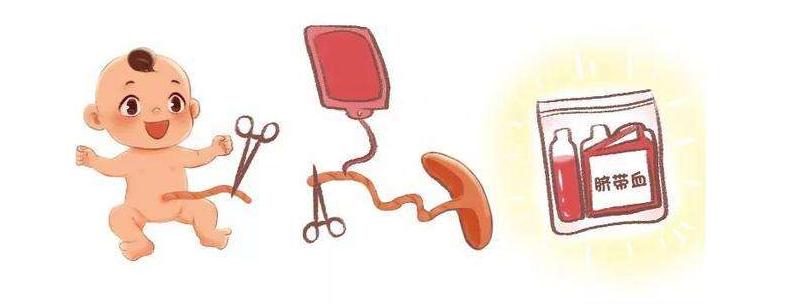Cord blood is blood that remains in the umbilical cord and placenta after the umbilical cord is ligated at birth.
The amount of umbilical cord blood is not much, but it contains hematopoietic stem cells that can rebuild the human hematopoietic system and immune system, which can be used for hematopoietic stem cell transplantation, and has a good therapeutic effect on more than 70 major diseases such as leukemia, lymphoma, and aplastic anemia.
Whether it is necessary to store cord blood may be something that every pregnant mother will consider before giving birth. Exist or not? What does it mean to have a private or public library? Is cord blood really a panacea?
It should be known that the use rate of cord blood in relatives related to blood is 25% to 50%, such as when there are members of the family who suffer from serious diseases such as blood system and immune system, they can increase the chance of finding a donor in their own family.

Although cord blood is very useful, it does not mean that it can "cure all diseases", in fact, it has a strict range of indications, and at present, cord blood is actually used in clinical diseases, mostly blood diseases.
A few days ago, a mother-to-be chatted with me said that she was about to give birth and was struggling with whether umbilical cord blood was donated or stored by herself, she really did not understand the difference, so today I will take you to understand it specifically.
There are currently two types of cord blood banks: public banks and private banks
Simply put, the public bank is a free donation, just like blood donation, the baby's cord blood is donated to the country, paired with others, the donor will receive an honorary certificate after successful donation, with this certificate, the donor needs to carry out stem cell transplantation in the future, enjoy the right of first choice.
The private library is self-storage, which needs to pay a certain fee, and the state saves it for you. The reservoir retainer has full ownership of autologously preserved cord blood stem cells during the preservation period.
So far, although millions of people have personally stored their cord blood, the number of people who actually use their own cord blood is really rare. Of the tens of thousands of people who received cord blood transplants, 99.99 percent received someone else's cord blood.
So while cord blood is very useful, it's mainly very useful to others. Its main value is that it can form a huge stem cell bank, so that everyone can search and seek useful matching resources.
Although the probability of unrelated matchmaking success is very low, as long as the optional sample size is large, there is still a high probability of successful matching. This is a very simple arithmetic problem: even if the probability of allogeneic ligand success is as low as 1 in 10,000, as long as there are 100,000 optional samples, the chances of successful matching are still considerable. Therefore, donating cord blood to public banks has great social value.
I hope that every one of us who is eligible to donate cord blood can actively donate, and establish this public cord blood bank as soon as possible, then the matching problem can be more easily solved, and maybe one day in the future, we can also benefit from it.
Cord blood lifesaving is a sign of the development and progress of science and technology and medical technology, and mothers must understand the importance of cord blood. Contribute to the national cord blood store, and maybe your small donation can save a person's life.